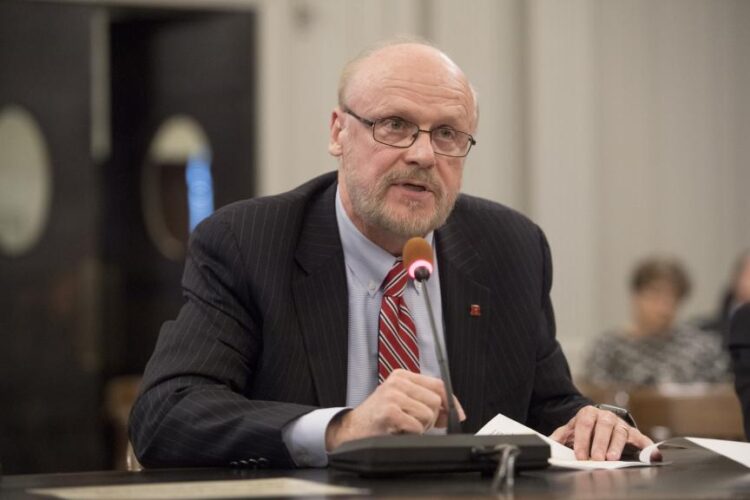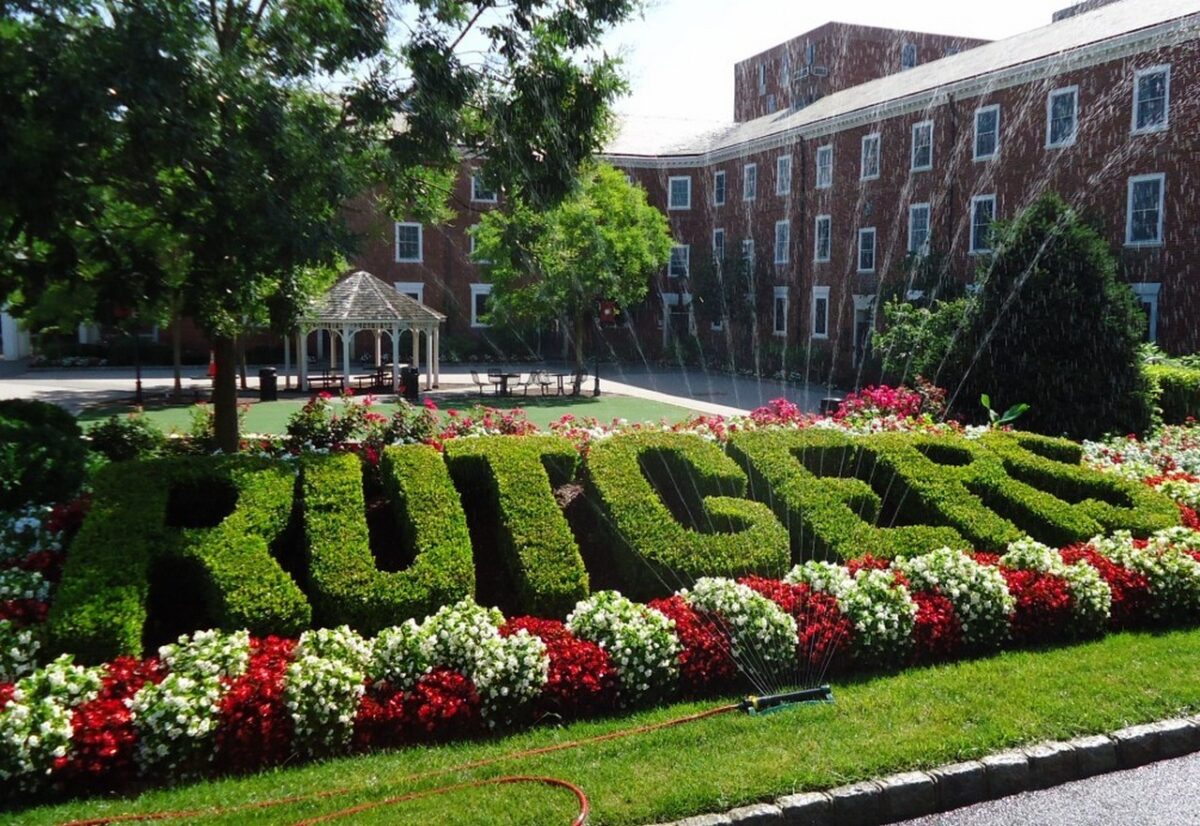Much to its discredit, Rutgers University — New Jersey’s flagship public university — stands accused of having swept antisemitism under the rug, as if it is a benign and harmless phenomenon of no concern to anyone. In what can only be described as an ominous sign of the times, Rutgers took this step recently in response to pressure from Palestinian students and their supporters on campus.
On May 26, the chancellor and provost of Rutgers, Christopher Molloy and Francine Conway, released a statement condemning antisemitism, which surged across the United States menacingly during Israel’s border war with Hamas from May 10 to May 21.
Such was the wave of antisemitic incidents that U.S. President Joe Biden issued two separate statements denouncing the world’s oldest hatred. “These attacks are despicable, unconscionable, un-American, and they must stop,” he said.
In their statement, Molloy and Conway condemned antisemitism and “all forms of bigotry, prejudice, discrimination, xenophobia and oppression” and expressed sadness and concern about “the sharp rise … in antisemitic violence …” And in a nod to Palestinian and Jewish sensitivities, they took note of “the deaths of children and adults and mass displacement of citizens in the Gaza region, and the loss of lives in Israel.”

By any yardstick, these were judicious and fair comments. But to Rutgers’ chapter of Students for Justice in Palestine, their remarks fell short of expectations. In their jaundiced view, Molloy and Conway “conveniently ignored the extent to which Palestinians have been brutalized by Israel’s occupation and bombing of Gaza.”
Condemning “widespread attempts to conflate antizionism with antisemitism and derail Palestinian voices and activism,” Students for Justice in Palestine demanded an apology from Molloy and Conway for “dismissing the voices and visibility of Palestinians and allies.”
And calling on the university to sever its relationship with Israel, Students for Justice in Palestine demanded that Rutgers “call out and expose any and all ties to Israeli apartheid,” recognize the “violent displacement” of Palestinians during the first Arab-Israeli war, and acknowledge “the gross mass murders (of Palestinians)… at the hands” of Israeli forces.

To no one’s surprise, Students for Justice in Palestine did not blame Hamas for having started the war. Nor did it criticize Hamas for having launched thousands of rockets indiscriminately at Israeli cities.
Regrettably, Molloy and Conway capitulated, releasing a second statement apologizing for the first one and promising that “our communications going forward are much more sensitive and balanced.”
Their abject and unnecessary apology, which smacked of appeasement, was rejected by Students for Justice in Palestine. In a followup statement, it arrogantly claimed that the university’s initial condemnation of antisemitism had been “unwarranted due to the absence of any publicly reported antisemitic incidents” at Rutgers of late.
What we have here is potentially dangerous, nothing less than an egregious attempt by Palestinians and their allies to minimize and sideline antisemitism, defame and delegitimize Israel at all costs, and force Rutgers to embrace the boycott, divestment and sanctions movement, whose ulterior goal is Israel’s destruction and its replacement by a Palestinian Muslim state.
The Palestinians are entitled to statehood, and it is long overdue, but it cannot be achieved at Israel’s expense. But to organizations like Students for Justice in Palestine, Israel is beyond the pale, born in sin and possessing no right whatsoever to exist as a sovereign and independent Jewish state. Its calls for a “Free Palestine” mean only one thing — the end of Israel.
The position Students for Justice in Palestine has adopted is promoted by, among others, Hamas, Islamic State, Hezbollah and Iran. In western countries, its nationalist ideology has morphed into a political staple of the shrill anti-Israel crowd, which now portrays itself as an intersectional social justice movement.
Hardline Israeli policies on settlement construction in the West Bank and the rejection of Palestinian statehood are partially to blame for the emergence of extremism in Palestinian diaspora communities. But at the end of the day, Palestinians themselves must be held accountable for dismissing the value of territorial compromise and the promise of a two-state solution.
Their dogmatic, winner-take-all attitude does not bode well for either side.
